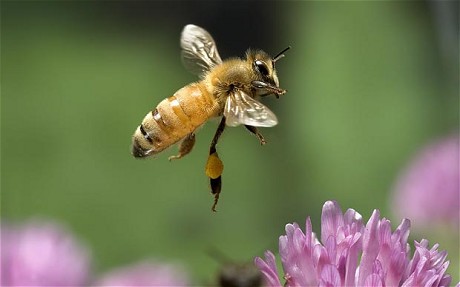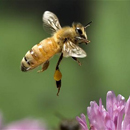White House Blocks Listing of Bumble Bee As Endangered Species
Gizmodo
Sun February 12, 2017
The rusty-patched bumble bee was scheduled to be added to the endangered species list on Friday but The US Fish and Wildlife Service has announced that process will need to be reviewed due to an executive order from the president. Lobbyists who oppose the Endangered Species Act have celebrated the decision.
The population of the rusty-patched bumble bee has plunged by 90 percent since the early 1990's following a trend that has seen bee populations plummeting in general. On January 11th, a new rule was adopted to add the bee to the ESA and a mandatory 30-day waiting period went into effect.
But on January 20th, Donald Trump became president and signed a sweeping executive order that froze all pending regulations for 60 days to review "questions of fact, law and policy they raise." The decision to delay the bee's listing as endangered is a direct consequence of that order. A ruling on the noble bee's status will have to wait until March 21st, setting environmentalists on edge.
"The Trump administration has put the rusty-patched bumblebee back on the path to extinction," Rebecca Riley, senior attorney for the Natural Resources Defense Council told CBS News. "This bee is one of the most critically endangered species in the country and we can save it - but not if the White House stands in the way."
NBC News received a statement from the nonprofit Xerces Society for Invertebrate Conservation that reads, "Delays to protecting this already vulnerable pollinator may prove catastrophic."
With the Trump administration's mode of operation generally leaning towards eliminating regulations, environmental advocates fear the delay will be permanent.
But not everyone is upset by the decision to wait. The American Farm Bureau Federation, a lobbying group that opposes the Endangered Species Act, celebrated in a statement. It reads in part, "The increased regulatory burden of the ESA negatively affects rural quality of life and jeopardizes the overall agriculture economy." In the past, the AFBF has claimed the ESA puts "the interests of species above those of people, and through its prohibitions against 'taking' of species, it can restrict a wide range of human activity in areas where species exist or may possibly exist."
The ESA requires that the government "protect and recover imperiled species and the ecosystems upon which they depend." Since the act was passed in 1973, there have been 28 species delisted due to recovery, including the bald eagle.
Aside from the rusty-patched bumble bee, no other pending endangered species listings are affected by Trump's order. Time will tell if this important pollinator is in the crosshairs of the administration.





 Share your thoughts in the Forum
Share your thoughts in the Forum